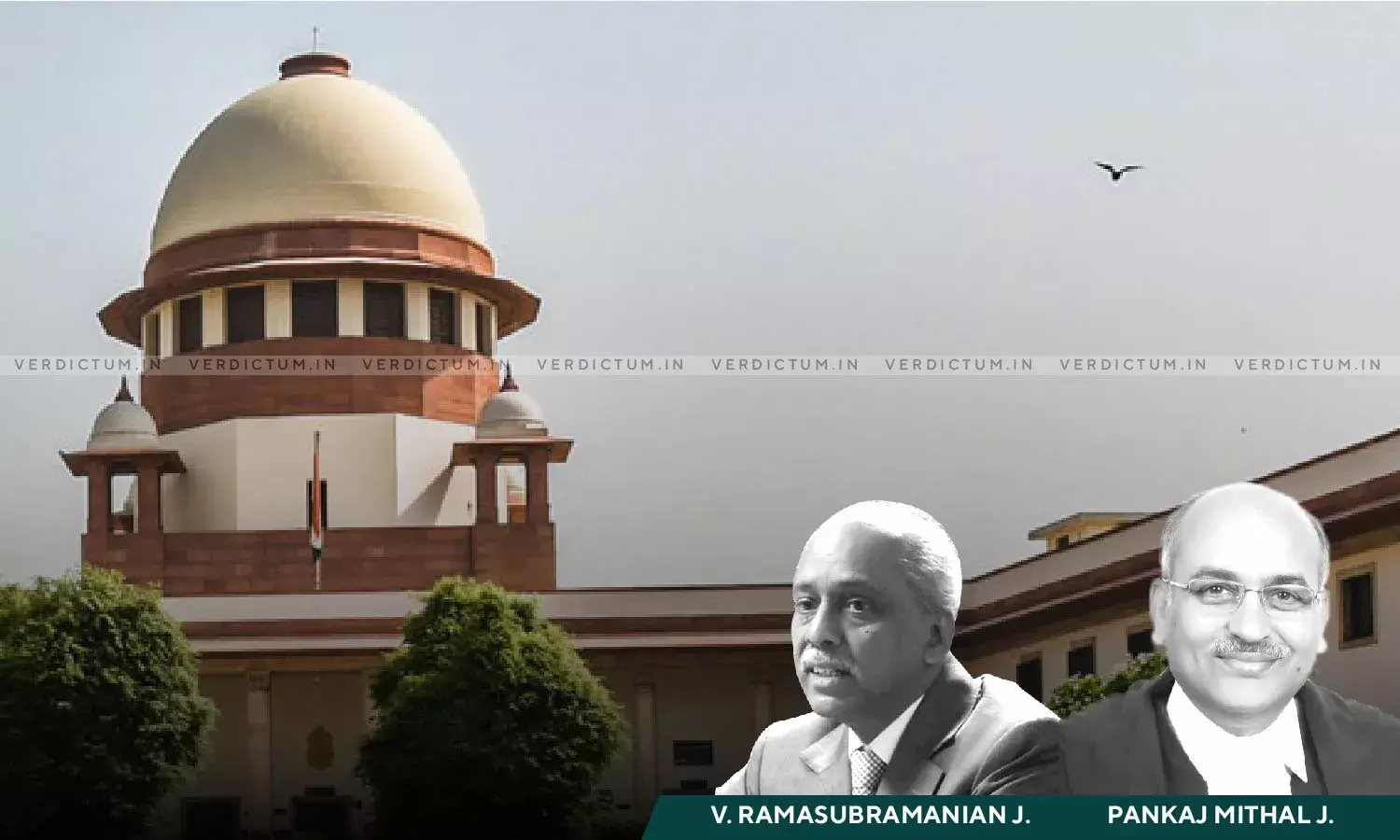Supreme Court Acquits Father And Son On Account Of Benefit Of Doubt In 1995 Murder Case

The Supreme Court has acquitted a father and son accused of a murder which was committed in the year 1995 giving them the benefit of doubt.
The two-Judge Bench comprising Justice V. Ramasubramanian and Justice Pankaj Mithal held, “Even if we ignore certain other minor discrepancies in the oral evidence, the delay in conducting the post-mortem, the difference in the name of the weapons of crime, i.e., “tabal” or “palkati” which are more or less similar types of instruments for cutting crops, etc., it is a case where the prosecution has miserably failed to prove that the accused appellants have committed the offence beyond any reasonable doubt. … the accused appellant No.1 is acquitted by giving the benefit of doubt.”
The Bench noted that in the absence of any credible eye witness to the incident and the fact that the presence of the appellants at the place of the incident is also not well established, it is constrained to accord the benefit of doubt to both the accused.
Advocate Prafulla Kumar Behera appeared for the accused/appellant while Advocate Jatinder Kumar Bhatia appeared for the State/respondent.
In this case, the appellants preferred an appeal against their conviction for an offence under Section 302 of the Indian Penal Code whereby they were sentenced to undergo life imprisonment and a fine of Rs. 20,000/- each. The incident was of August 1995 which allegedly took place in the morning and the appellants were arrested by the Investigating Officer as the weapons of crime were recovered from them.
There was a land dispute of which the proceedings were pending before the Consolidation Officer and on the fateful day, the deceased was going to Roorkee for attending the said proceedings on his bicycle, and his son and nephew were a little behind on their cycles following him. On reaching near to the spot, the appellants armed with “tabal” and “axe” assaulted him and upon raising an alarm by the deceased’s son and nephew, they escaped towards the jungle leaving behind their blanket and cycle.
The Supreme Court in view of the above facts observed, “… we are of the view that the prosecution failed to prove to the hilt that the accused appellants were the persons involved in the assault and death of the deceased Altaf Hussain. … The totality of the facts and circumstances especially the unnatural behaviour and conduct of the son and nephew of the deceased Altaf Hussain, ante-timing of the FIR and that the ‘loi’ (blanket) and the cycle (Exh. Ka-10 and Exh. Ka-11) alleged to be that of the accused appellants left behind at the site of the incident were not produced before the Court, compels us to doubt the presence of the son and nephew of the deceased Altaf Hussain at the site.”
Accordingly, the Apex Court allowed the appeal, set aside the judgment, and acquitted the accused.
Cause Title- Mohd. Muslim v. State of Uttar Pradesh (Now Uttarakhand)


